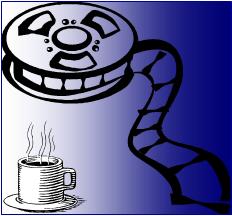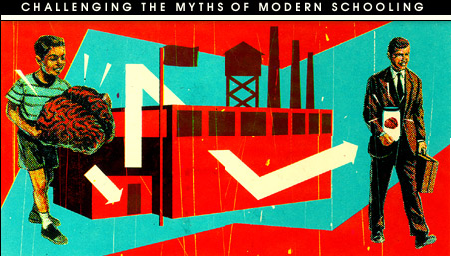

|
 |
Dear America ___________
|
Please go to the new Coffee Coaster site implemented more gracefully in Wordpress. This page: http://brianrwright.com/CoffeeCoasterBlog/?p=2768 |
Tom Berenger ... (voice)
Ellen Burstyn ... Mrs. Stocks (voice)
Josh Cruze ... (voice)
Willem Dafoe ... Elephant grass (voice)
Robert De Niro ... Great sewer (voice)
Brian Dennehy ... (voice)
Kevin Dillon ... Jack (voice)
Matt Dillon ... Mike? (voice)
Robert Downey Jr. ... (voice)
Michael J. Fox ... Pfc. Raymond Griffiths (voice)
Mark Harmon ... (voice)
John Heard ... Johnny Boy? (voice)
Harvey Keitel ... 2nd Lt. Donald Jacques (voice)
Elizabeth McGovern ... Me (voice)
Judd Nelson ... (voice)
Sean Penn ... (voice)
Randy Quaid ... Cpl. Kevin Macaulay (voice)
Eric Roberts ... (voice)
Ray Robertson ... (voice)
John Savage ... (voice)
Martin Sheen ... Alan (voice)
Tucker Smallwood ... (voice)
Kathleen Turner ... 1st Lt. Lynda Van Devanter (voice)
Robin Williams ... Baby-san (voice)
Mrs. Stocks (Ellen Burstyn):
[In a letter to her KIA son, left at the Vietnam Memorial]
Dear Bill,
I came to this black wall again, to see and touch your name. William R. Stocks. And as I do, I wonder if anyone ever stops to realize that next to your name, on this black wall, is your mother's heart. A heart broken fifteen years ago today, when you lost your life in Vietnam. And as I look at your name, I think of how many, many times I used to wonder how scared and homesick you must have been, in that strange country called Vietnam....
[1: remainder]
Please take a moment and read that paragraph above, which comes from the actual writings of the mother of a boy who died in Vietnam. If you're like me, you'll drop a tear in your beer in a nanosecond's time. After such a missive comes at you from the screen, a movie review seems entirely anticlimactic. And so let it be.
For one needs to know nothing else about this war and all the wars in all the places in all the times: your boys—and now, I guess, your girls, too —suffer and die for no apparent reason, lonely and afraid in a faraway land. Dear America is the documentary that Jesus the Peacemaker would send down from heaven, reminding us that in the age of international bankster-generated wars nothing good or moral is defended or affirmed by them... that the only "good war" is a non war. The movie has a "You Were There" quality, scored with tunes of the time.
Roger Ebert's review is dead nuts spot on, and in it he informs us that director Couturié spent hour after hour getting the words in synch with the music and the action on the screen.
"There are moments here that cannot be forgotten, and most of them are due to the hard work of the filmmaker, director Bill Couturie, who has not taken just any words and any old footage, but precisely the right words to go with the images. Couturie began with an anthology of letters written home by U.S. soldiers in Vietnam. Then he screened the entire archive of TV news footage shot by NBC-TV from 1967 to 1969 - 2 million feet of film totaling 926 hours. He also gained access to footage from the Defense Department, including previously classified film of action under fire. Much of the footage in this film has never been seen publicly before, and watching it, you know why."
Couturié builds his authentic human story on the framework of nightly network news broadcasts, mostly in black and white, from the ratcheting up of America's "commitment" (when LBJ ascended to the presidency) thru the so-called Vietnamization of the war—withdrawing American troops—in the years following the Tet Offensive of 1968. Also, the director posts, on a black and white background showing aircraft in the sky, the statistics at the end of every year: (American) dead, wounded, missing. Final tally: 58,159 dead, 303,635 wounded, 2,000 missing. You watch the stats grow every year, and shake your head.
Such remarkable simplicity in a cinematic creation does not happen by chance, and the love in "this labor of" shines through like a giant sun rising over the rice paddies.
There is no greater poetry than these honest statements of boys—average age of combat infantryman = 19—to their loved ones back in the states. Further, the actors rise above themselves in applying their voices to the sentiments. None of the men or women—a few nurses are featured—chronicled suggests he has any grand notion of the purpose of such massively destructive collective action. Typically, "I'm really not sure what we're doing here or why, but it must be the right thing. The only thing I do know is I sure don't want to be here a minute longer than absolutely necessary. Hi, Mom."
Most of the writing is commonplace, but occasionally a soldier expresses the most beautiful and tender thoughts imaginable, in words that would challenge the skilled imagery of a William Blake... or a Forest Gump. Unfortunately, on a quick search I couldn't find any transcripts of the letter segments. But one that stirred my soul was spoken by an actor with an incredibly deep and gravelly voice; he was describing this beautiful flower that had sprouted among the rubble, using it as an analogy for the struggle of wondrous life in such a hellhole. [At the same time, the director displays footage of a lovely isolated flower, a beautiful pink on a barren gray background... like a scene from the movie Pleasantville.]
A scene that completely humanizes the American troops to me comes from actual footage in the emergency barracks [or whatever they call the meat grinder where medical care is dispensed]. One of these tough, brush-haircut, older sergeant-hero types has taken shrapnel in the left leg. He realizes amputation is likely, because, well, there isn't much leg remaining past the knee. The camera views him from the head and on his right side about 15 feet away from the table. In great pain and distress, he's talking to keep the spirits of the others up, other wounded soldiers in the room, but also he's talking to encourage himself as through a grimace... spitting the words out.
"Took it down there. I know. We had to move Smith to safety. Great action today. My men brave, so brave. We were near the town. Could have called in the strikes. Man, hate that napalm. Can't do that to people, women and children. We're not killers. Wouldn't have changed anything. God, this sucks, but we all did right today. Do what you can..."
As if exclaiming on his own humanity, the humanity of his enemy, and the humanity of all the collateral being killed and mangled.
Aside from the battle-related storytelling, we do get to watch the recreational side of life for the active-duty guys, back in glittery Saigon with the beer, booze, and girls. You also realize that for the ones on the ground, performing the search and destroy missions way off in Podunk Jungle, they didn't get much R&R. They could be out for weeks, without a change of clothes, battling insects and elephant grass, worrying about a land mine or a VC mortar falling on their heads. For these guys primo R&R was simply a bar of soap and cup of koolaid away from the war zone.
This movie sneaks up on you, but it will move you to your core. In my case, the normal impetus to analyze—to opine on the source of this war, who was the aggressor, the magnitude of the number of civilians (non-American human persons) slaughtered, how to prevent it from happening again, etc.—does not emerge. Just read (listen) and weep. This is war.
###
...And if and how it might have changed you, for you were the most happy-go-lucky kid in the world, hardly ever sad or unhappy. And until the day I die, I will see you as you laughed at me, even when I was very mad at you. And the next thing I knew, we were laughing together.
But on this past New Year's Day, I talked by phone to a friend of yours from Michigan, who spent your last Christmas and the last four months of your life with you. Jim told me how you died, for he was there and saw the helicopter crash. He told me how your jobs were like sitting ducks; they would send you men out to draw the enemy into the open, and then, they would send in the big guns and planes to take over. He told me how after a while over there, instead of a yellow streak, the men got a mean streak down their backs. Each day the streak got bigger, and the men became meaner. Everyone but you, Bill. He said how you stayed the same happy-go-lucky guy that you were when you arrived in Vietnam. And he said how you, of all people, should never have been the one to die. How lucky you were to have him for a friend. And how lucky he was to have had you. They tell me the letters I write to you and leave here at this memorial are waking others up to the fact that there is still much pain left from the Vietnam War. But this I know; I would rather to have had you for twenty-one years and all the pain that goes with losing you, than never to have had you at all. — Mom
,
Click banner to order, click here for book review


Click banner to
order, click here
for book review

Click banner to
order, click here
for book review
 |
 |
|||
| |